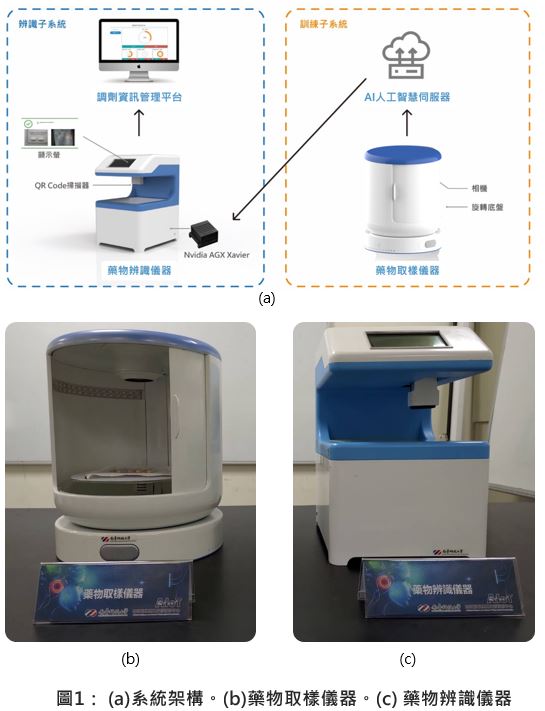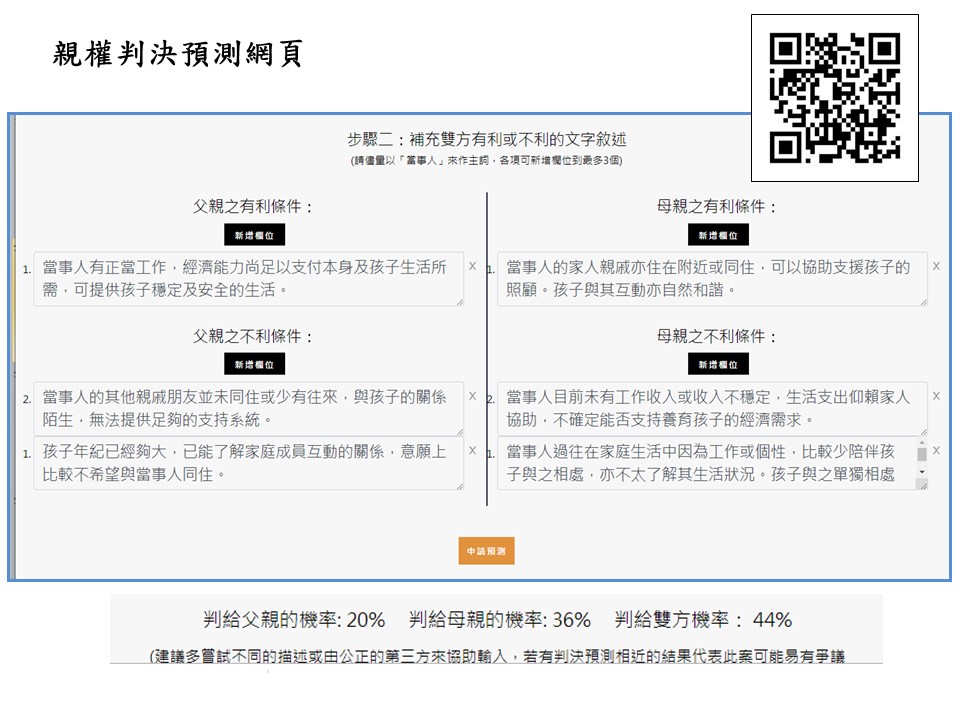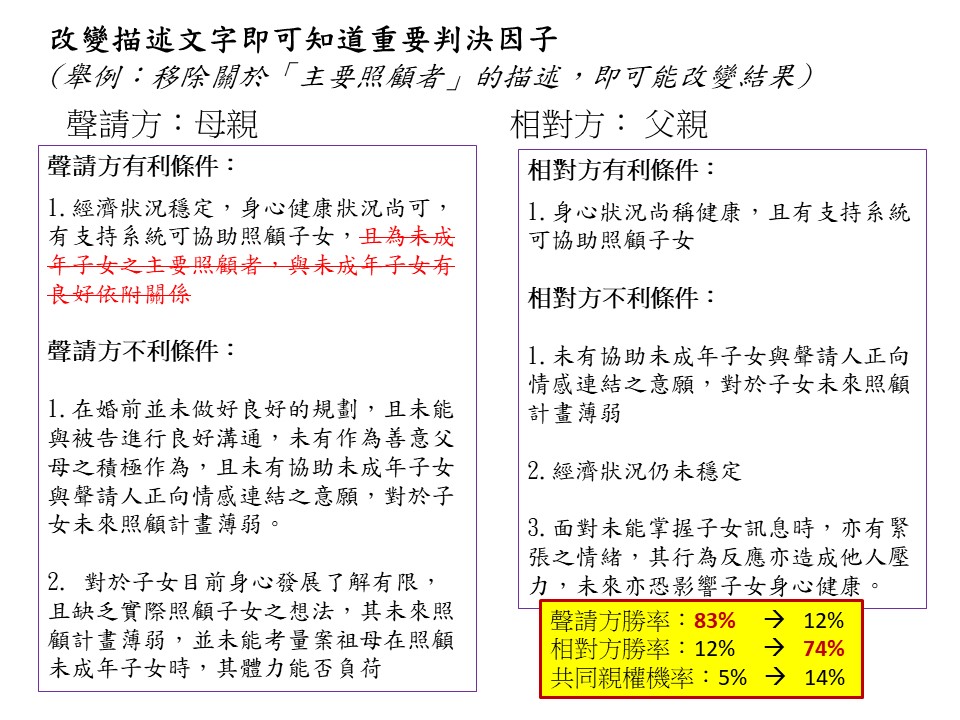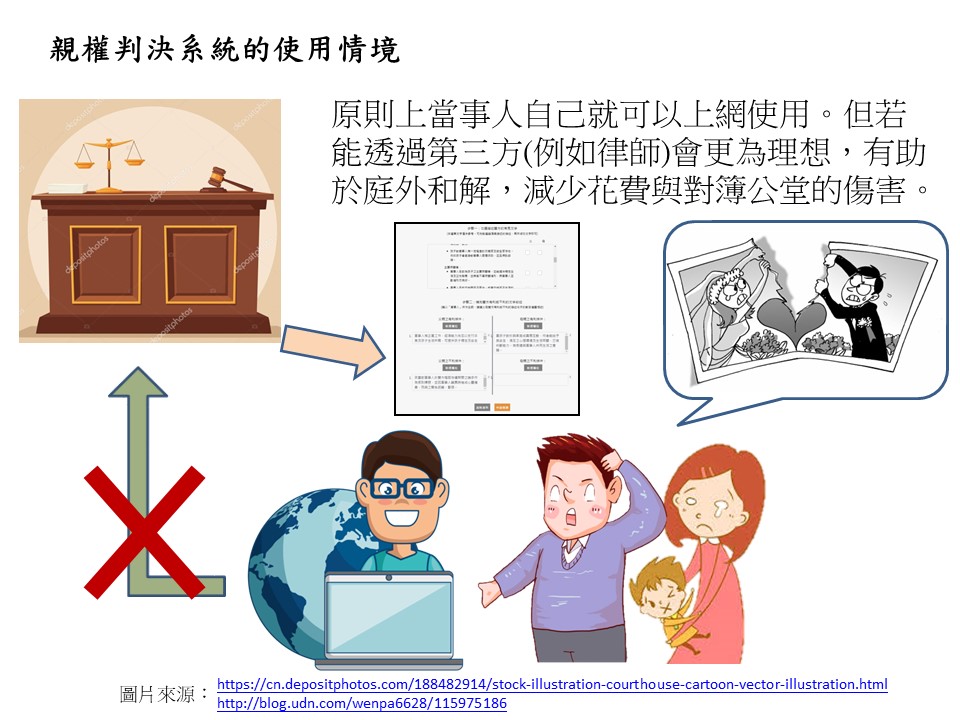| Technical Name | AI Predicting System for Child Custody | ||
|---|---|---|---|
| Project Operator | National Tsing Hua University | ||
| Project Host | 王道維 | ||
| Summary | We developed a Prediction System for Child Custody (PSCC) solely based on natural language. The word embedding and doc2vec technologies are used to convert the text into a vector expression, and Deep Learning algorithm with self-attention is implemented to train a model based on known results. During the training process, we also introduce neutral sentences to balance the training data and to do data augmentation, significantly improving the overall accuracy and stability. Our PSCC can reach an accuracy rate of 93.23% in the judgment of the single custody (binary decision between father and mother), and can also reach an accuracy rate of 81.53% in the ternary decision, including results of a joint custody. In terms of legal practice, our PSCC system already has a public test webpage (https://custodyprediction.herokuapp.com/), which allows both parties or lawyers to directly use. This should help the dispute resolution for the family and society. |
||
| Scientific Breakthrough | Our system uses a special labeling method to find out the reasons for the decision made in the entire document through textual descriptions. We also integrate various NLP technology to convert text into vector expressions, and uses Deep Learning algorithms to predict judgement results. Our system can delicately intercept the expression differences in the written language, and provide users with an understanding of those factors through the attention mechanism. In the training process, we introduced neutral sentence data to balance the training data and for data augmentation, improving the overall accuracy and stability. There is no natural language input method similar to ours for judgment predictions in the world. |
||
| Industrial Applicability | Our system is to promote the value of Social Common Good. First, our open web page (https://custodyprediction.herokuapp.com/) allows users to input textual descriptions and immediately see the results of the judgment prediction. It helps the parties resolve dispute more easily. Lawyers can use this system to adjust litigation strategies to help clients more efficiently. Judges can use this system to understand the standards of past judgments, improving the quality of judgments. Government could also provide relevant social and police information when promoting this system or other similar out-of-court judgment prediction systems. This could enhance the stability and predictability of judicial trials. |
||
| Keyword | Artificial Intelligence Natural Language Processing Judgment Prediction System Child Custody Divorce Social Enterprise Family Dispute Resolution | ||
- yt.lin@mx.nthu.edu.tw
other people also saw







